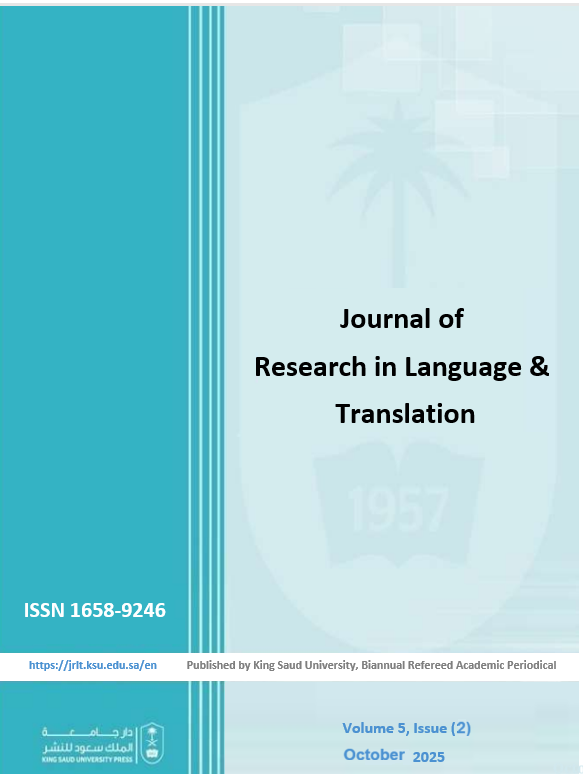Critical Language Awareness in Translation: Towards A Critical Cognitive Corpus-Based Training of Translators
DOI:
https://doi.org/10.33948/JRLT-KSU-5-2-10Keywords:
conceptual and lexical invariance, translator training, cognitive corpus-based critical discourse analysis, critical language awareness, translated discourseAbstract
Despite previous studies on language awareness in translation, there remains a lack of acknowledgement, among practitioners, of how critical language awareness (Fairclough, 1992/2003) of the cognitive side of meaning is essential to the work of translators, both trainees and professionals working or teaching and training in the field of translation. The current study examined the extent to which trainee translators demonstrate critical awareness of conceptual structures in both the source and target languages when rendering figurative lines from Arabic poetic discourse into English. The aim was to offer pedagogical recommendations for enhancing translation training through empirical evidence drawn from a cognitive corpus-based Critical Discourse Analysis (CDA) of trainees' translations. The findings revealed widespread conceptual distortions stemming from inadequate awareness of the Source Language’s (SL) metaphorical meaning, conceptual schemas, and cultural narratives. The focus group and interview data revealed that these errors were often linked to an overreliance on bilingual dictionaries, limited historical knowledge, and a lack of critical awareness of the discourse world of the source text. The current findings shed light on the merits of incorporating cognitive corpus-based analysis of translated discourse in translators’ pedagogy and training to enhance their critical language awareness, not only to develop their skills and careers but also to avoid chances of arriving at inaccurate translations that may threaten their cogency and distort the intended meaning of the original (source) text.

